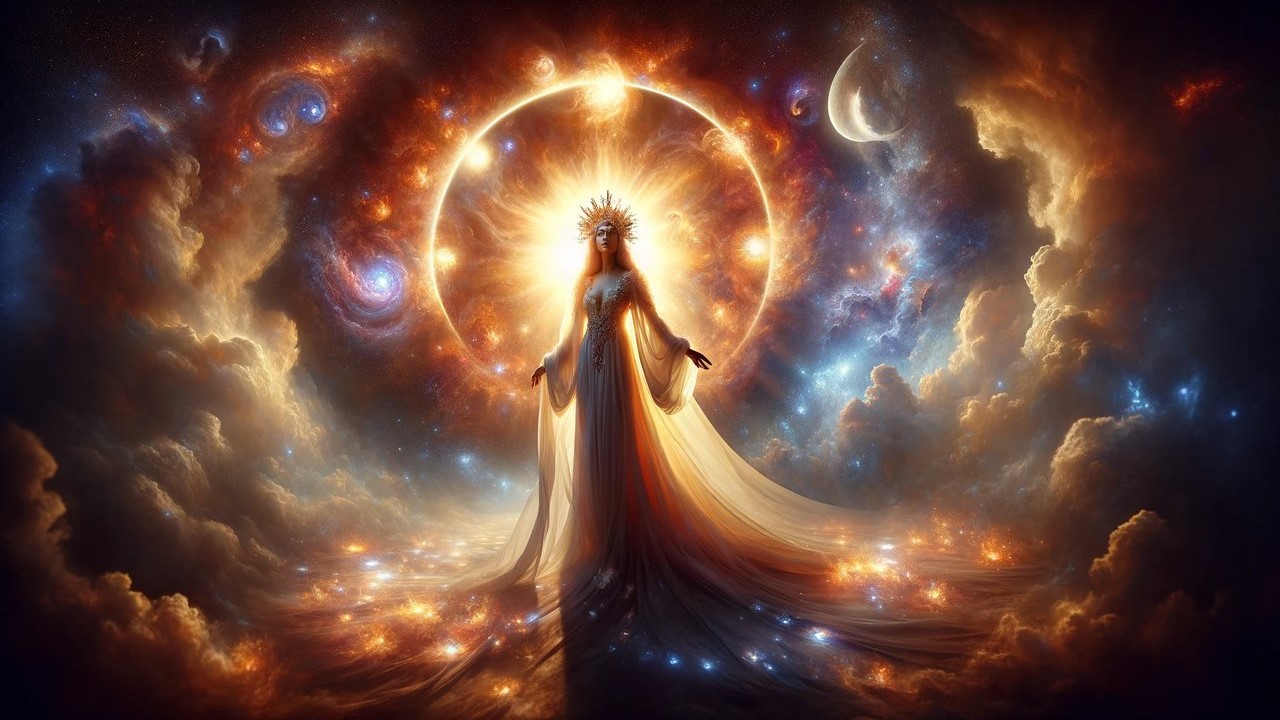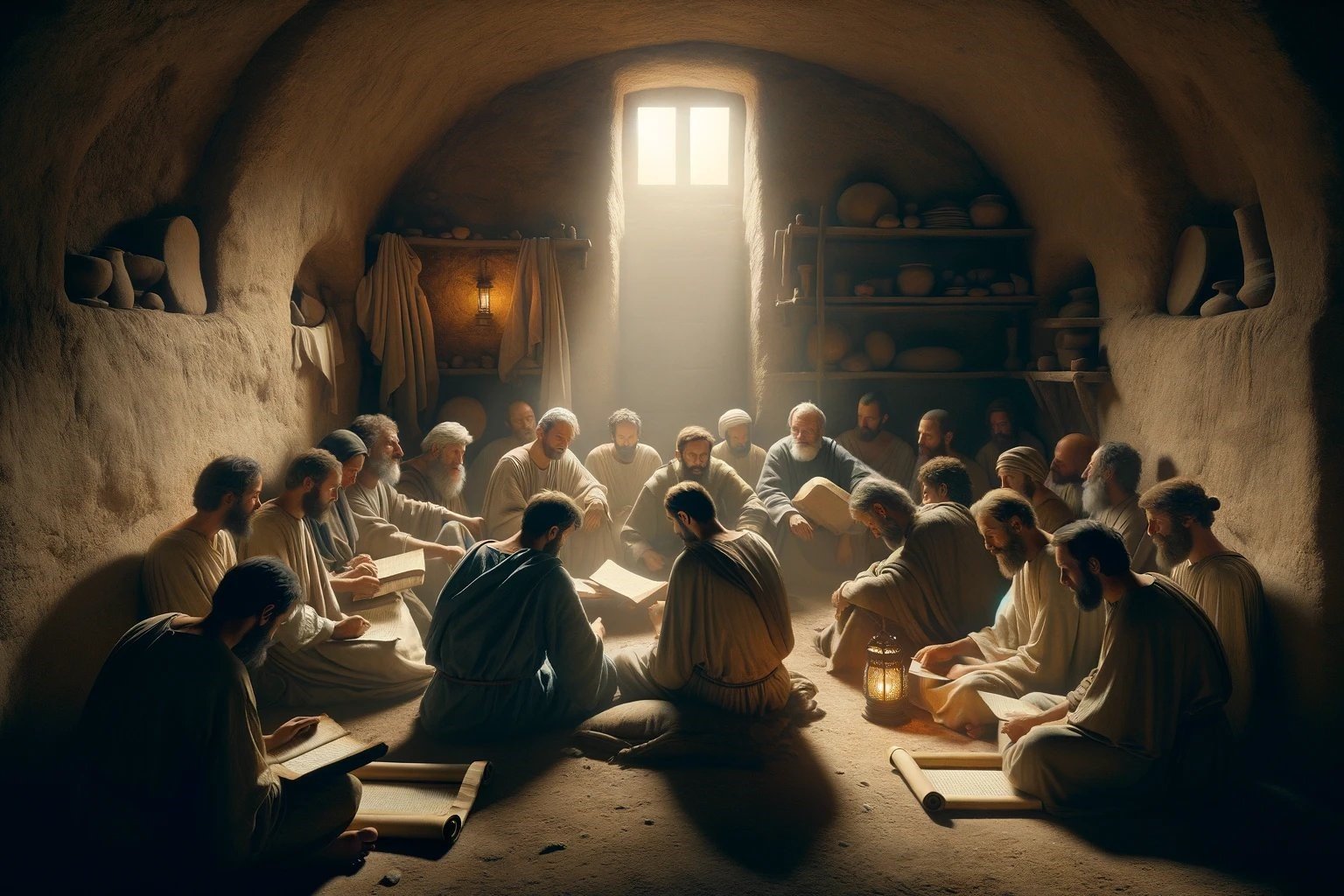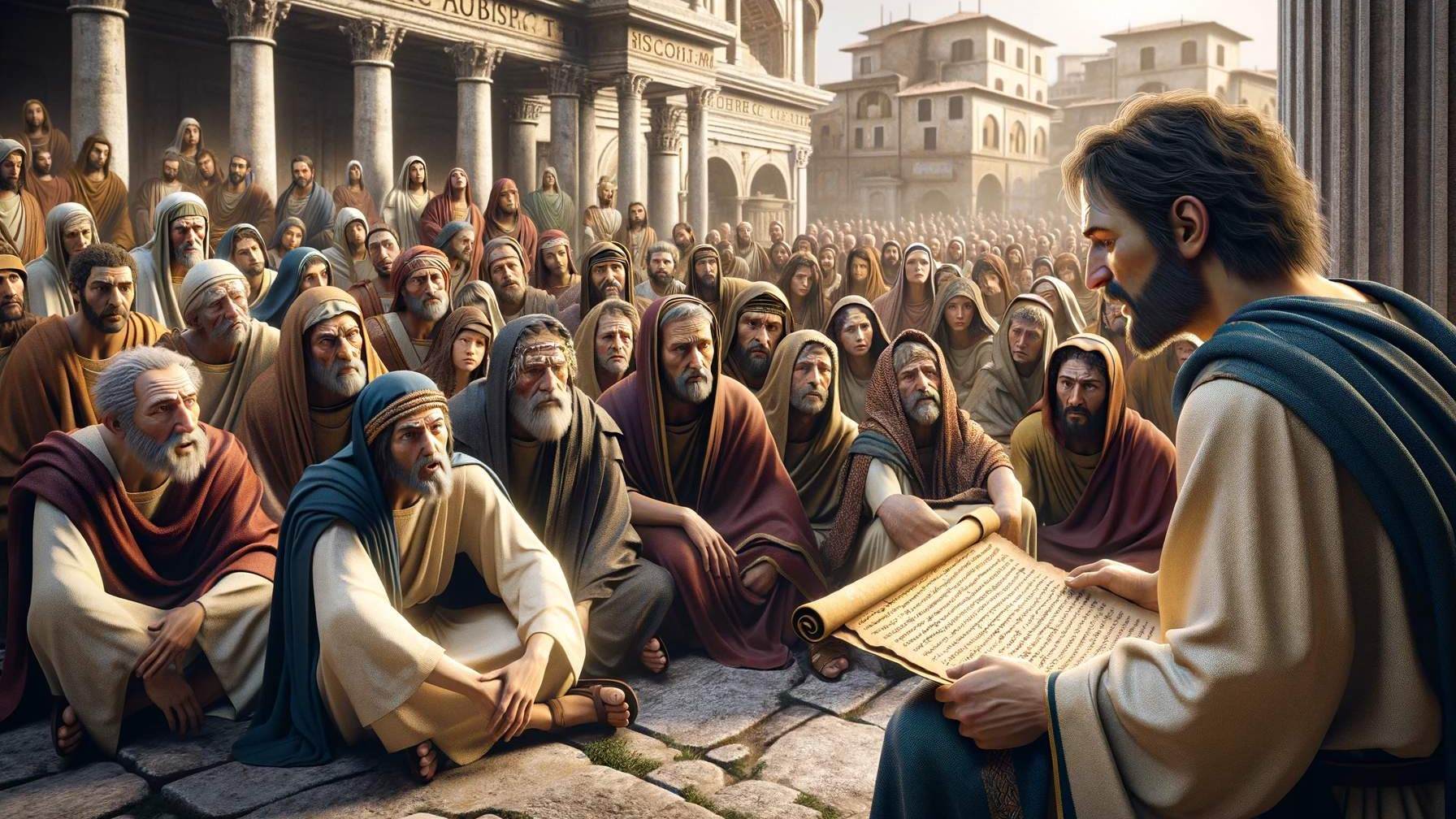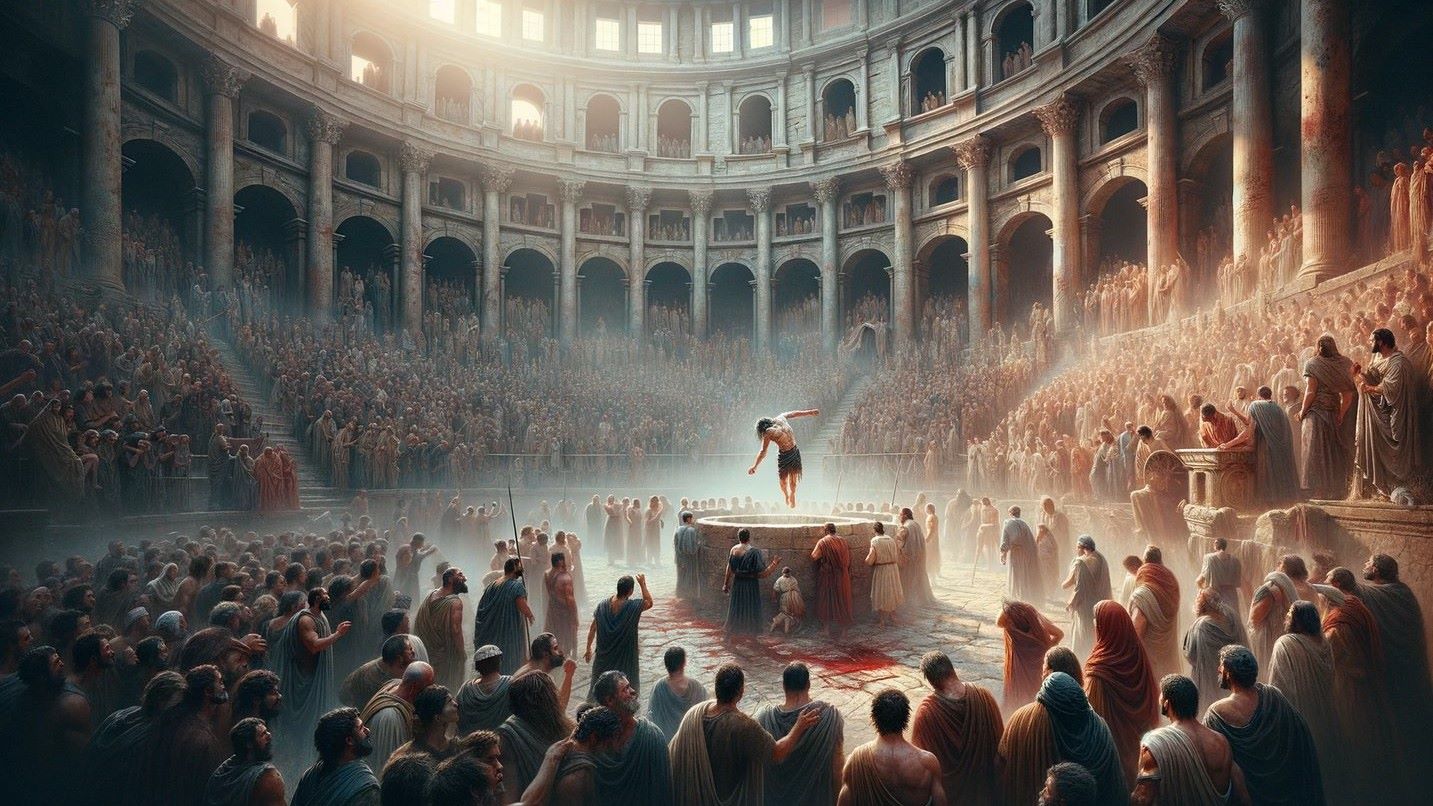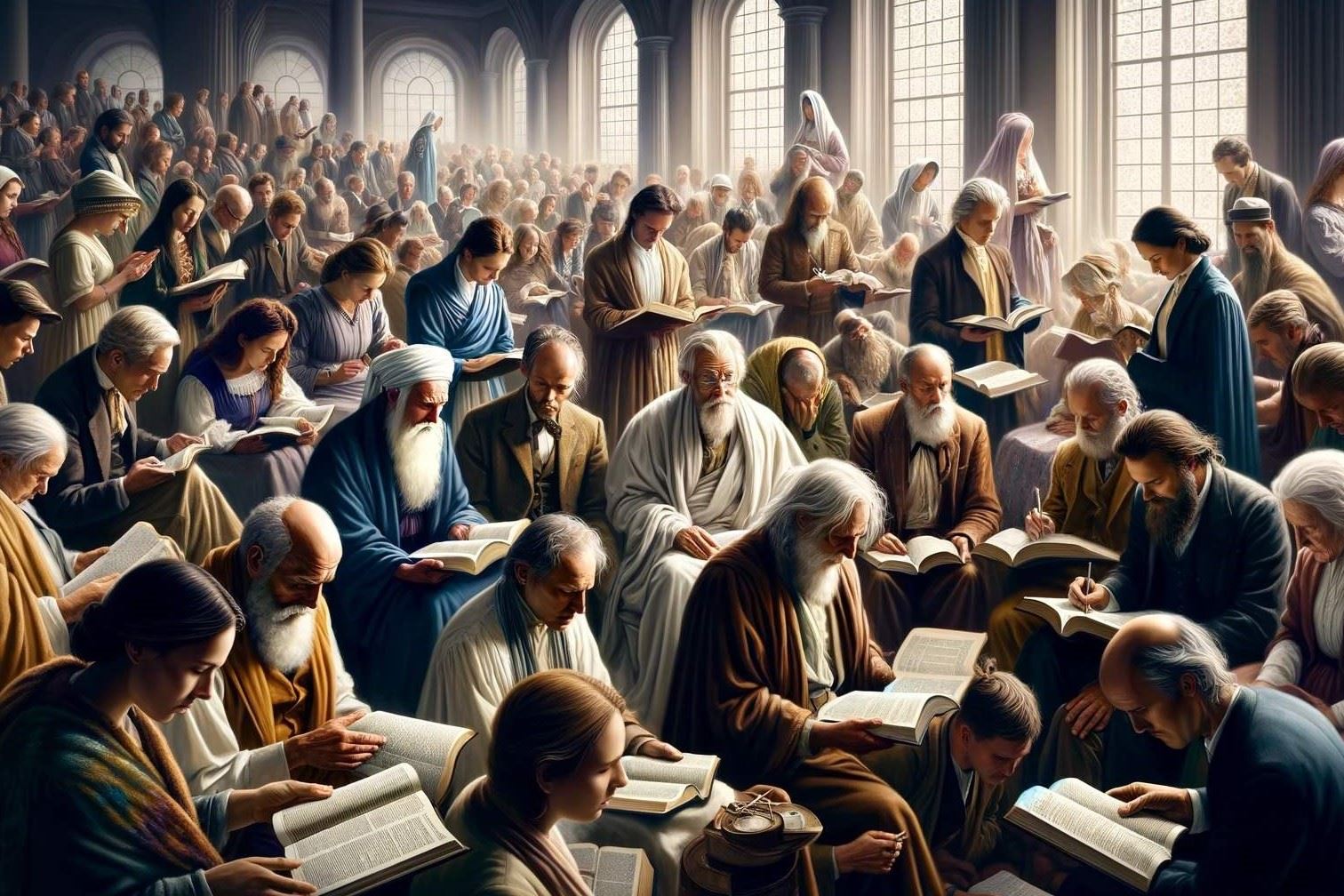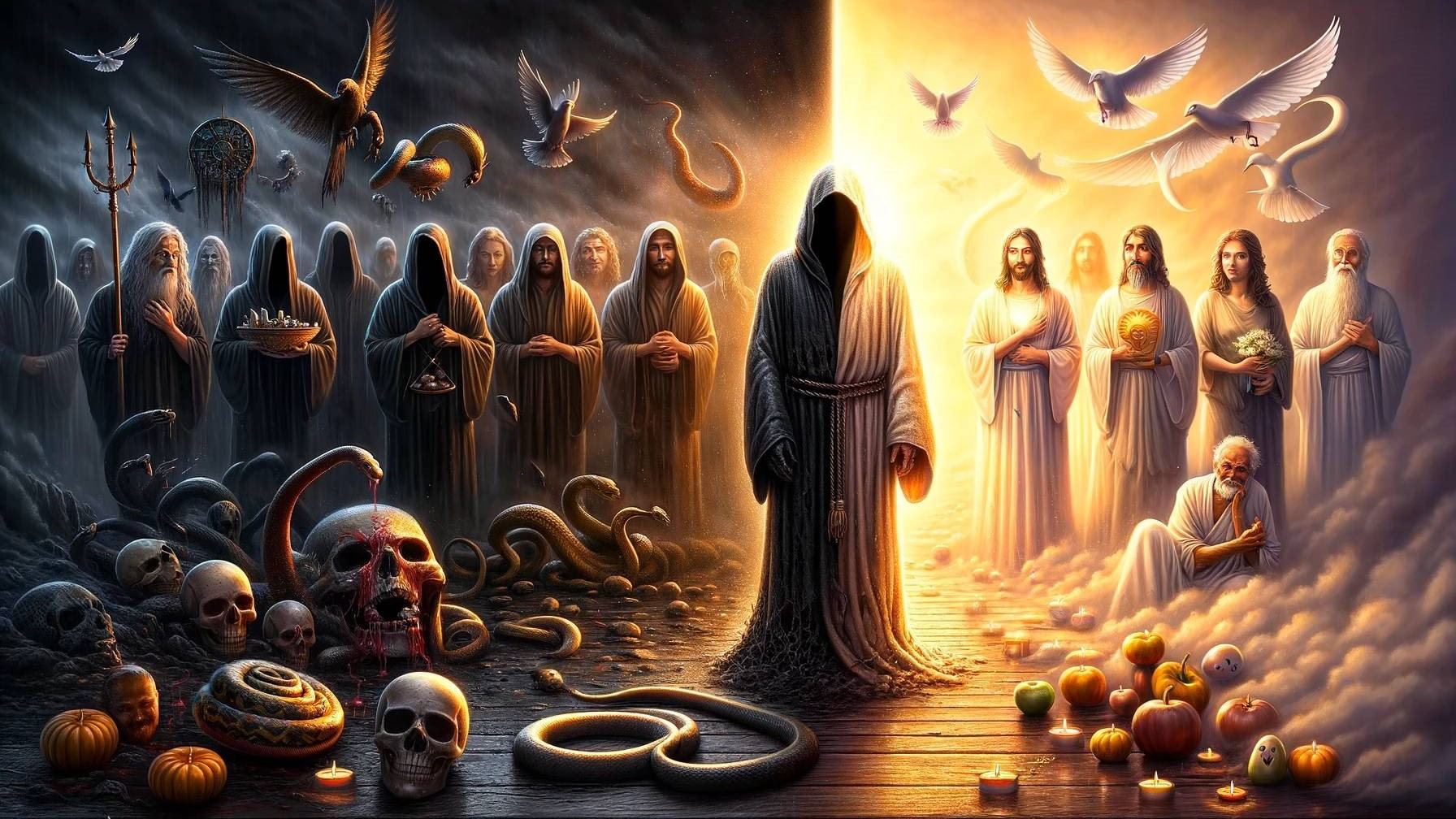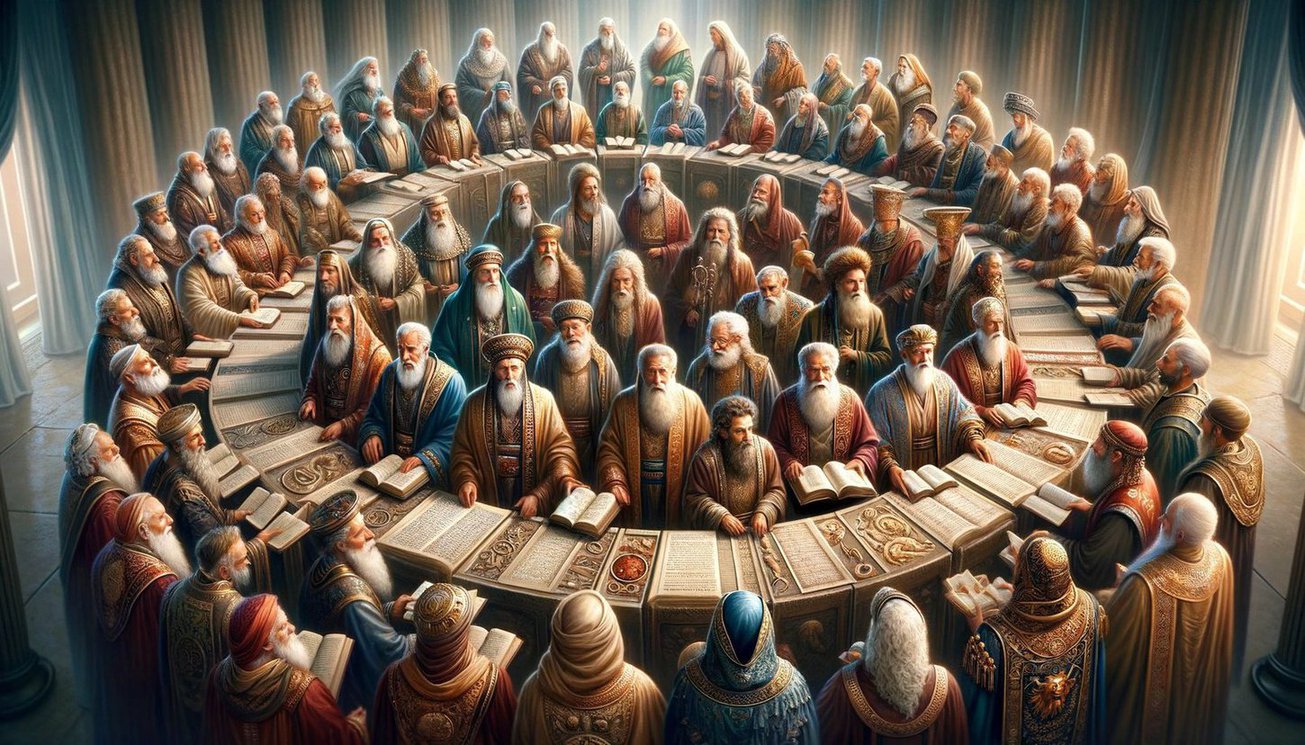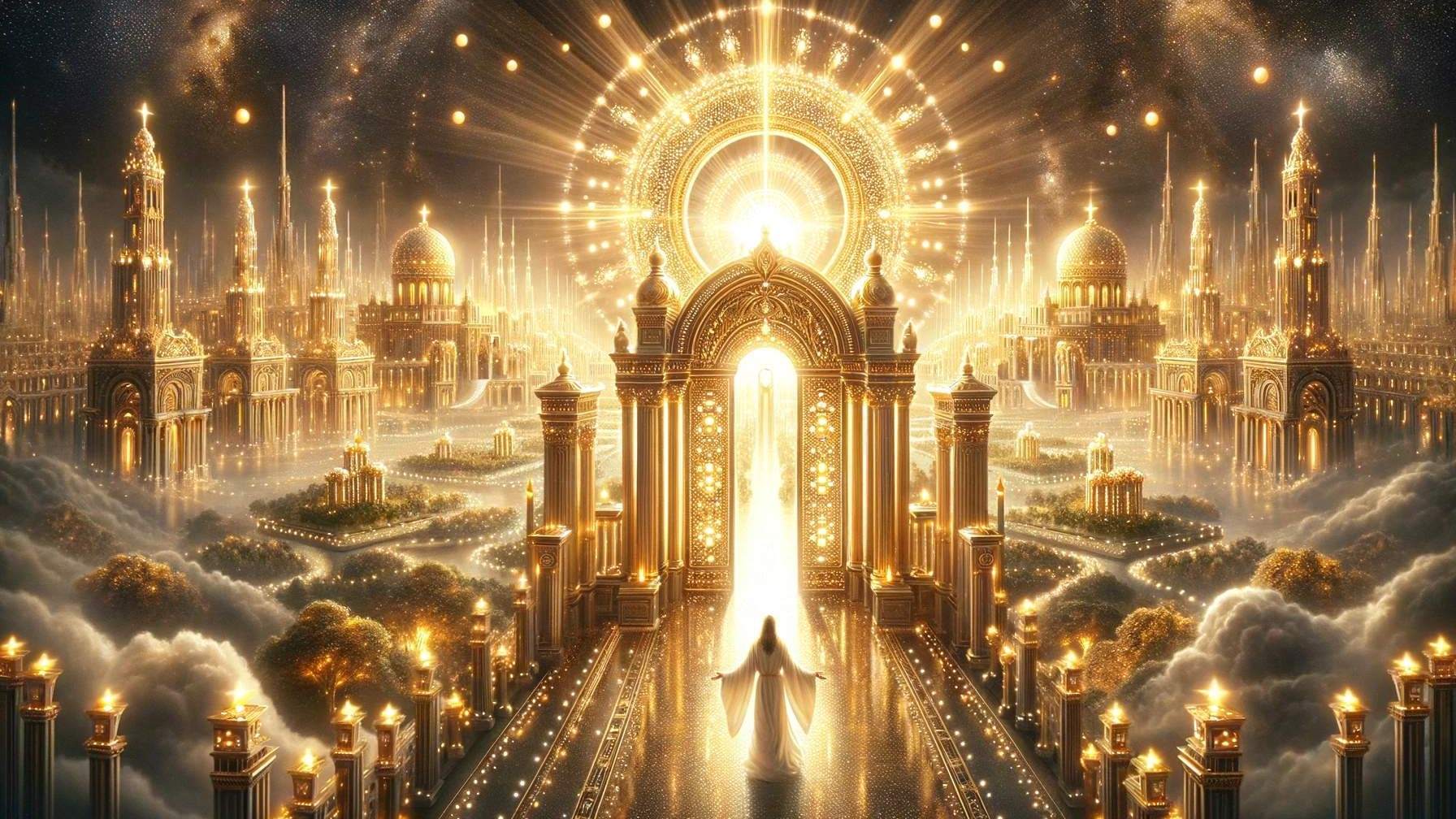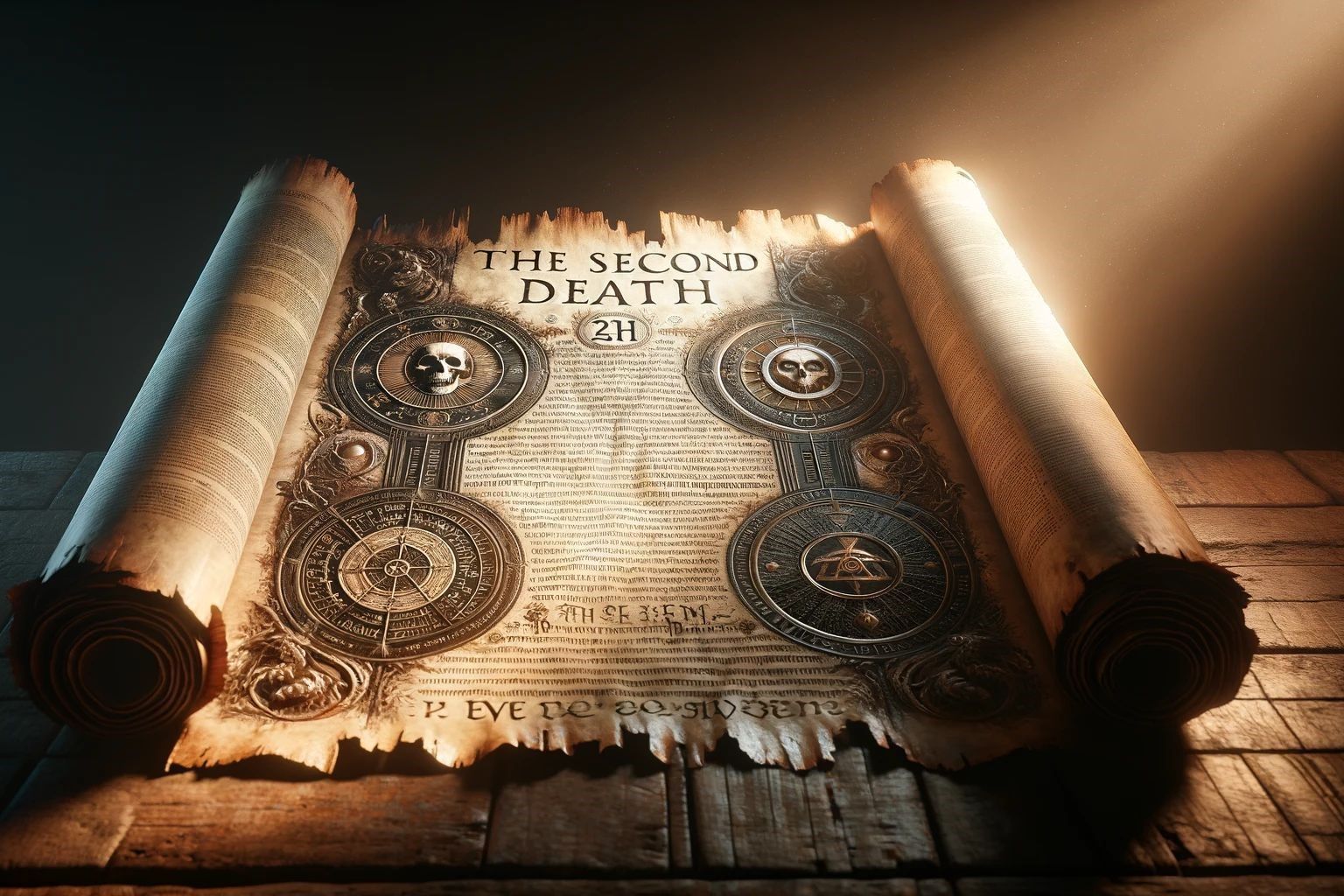Home>Bible Facts>Who Are The Two Witnesses Mentioned In The Book Of Revelation
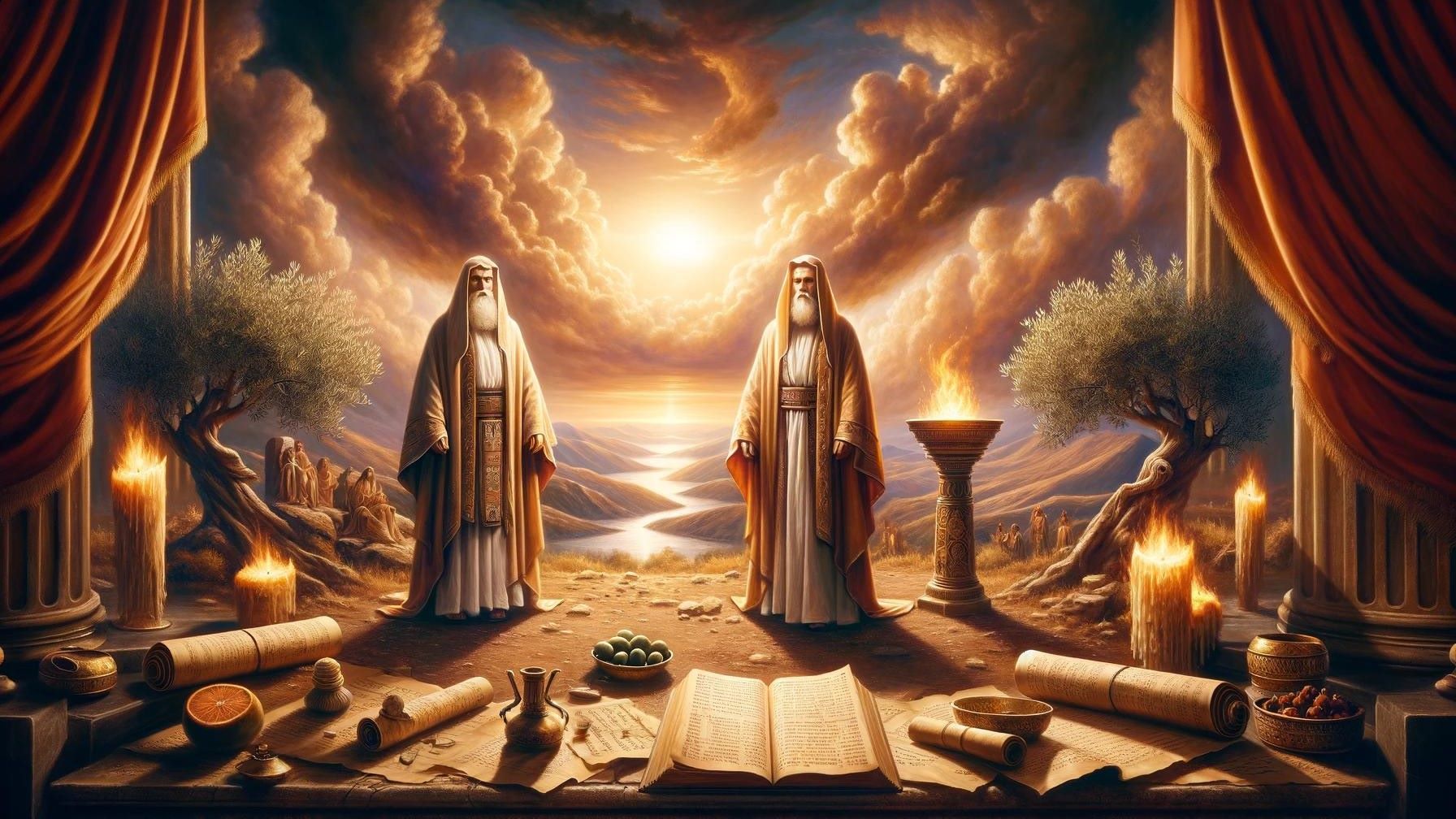

Bible Facts
Who Are The Two Witnesses Mentioned In The Book Of Revelation
Published: February 11, 2024
Peter Smith, Editorial Director at Christian.net, combines deep insights into faith, politics, and culture to lead content creation that resonates widely. Awarded for his contributions to religious discourse, he previously headed a major organization for religious communicators, enhancing dialogue on faith's societal impacts.
Discover the truth about the two witnesses mentioned in the Book of Revelation and their significance in biblical prophecy. Uncover fascinating Bible facts and insights.
(Many of the links in this article redirect to a specific reviewed product. Your purchase of these products through affiliate links helps to generate commission for Christian.net, at no extra cost. Learn more)
Table of Contents
Introduction
The Book of Revelation, the final book of the New Testament, is a profound and enigmatic text that has captivated readers for centuries. Within its pages, there are numerous symbolic figures and events, each carrying deep spiritual significance. One of the most intriguing elements of this apocalyptic work is the mention of the Two Witnesses. These enigmatic figures play a pivotal role in the events described in Revelation, and their identity and purpose have been the subject of much speculation and interpretation.
The mention of the Two Witnesses is found in Revelation 11:3-12, where they are described as two individuals who will prophesy and perform miraculous signs during the end times. Their presence is closely linked to the period of tribulation and the final battle between good and evil. As such, understanding the identity, characteristics, and significance of the Two Witnesses is essential for comprehending the deeper message of the Book of Revelation.
Throughout history, theologians, scholars, and believers have offered various interpretations regarding the identity of the Two Witnesses. Some view them as literal individuals who are yet to appear on the world stage, while others interpret them symbolically, representing broader concepts or groups. Regardless of the specific interpretation, the Two Witnesses hold a central place in the prophetic narrative of Revelation, and their role sheds light on the cosmic struggle between divine forces and the powers of darkness.
In the subsequent sections of this article, we will delve into the identity, characteristics, and role of the Two Witnesses, seeking to unravel the profound symbolism and spiritual truths embedded in their portrayal. By exploring these aspects, we aim to gain a deeper understanding of the significance of the Two Witnesses within the context of the Book of Revelation and the broader Christian eschatological framework.
The Identity of the Two Witnesses
The identity of the Two Witnesses has been a subject of intense speculation and debate throughout the history of biblical interpretation. In Revelation 11, they are described as two individuals who possess extraordinary powers and are tasked with prophesying during a period of great turmoil and tribulation. The text does not explicitly name these individuals, leading to diverse interpretations regarding their identity.
One prevalent interpretation posits that the Two Witnesses are symbolic representations of specific individuals or groups. Some scholars and theologians suggest that they symbolize the Old and New Testaments, representing the continuity and unity of God's message across different eras. Others view them as emblematic of the church or faithful believers who bear witness to the truth in the face of persecution and opposition.
Another perspective considers the Two Witnesses as literal figures who are yet to emerge onto the world stage. Within this framework, various candidates have been proposed throughout history, including biblical figures such as Moses, Elijah, Enoch, or even John the Apostle. Proponents of this view often draw parallels between the miraculous deeds attributed to the Two Witnesses in Revelation and the actions of these historical figures in the Old and New Testaments.
Furthermore, some interpretations suggest that the Two Witnesses represent prophetic voices or movements that will arise in the end times, embodying the spirit of Elijah and Moses in their fearless proclamation of divine truth and the demonstration of supernatural powers. This understanding aligns with the broader theme of eschatological events and the fulfillment of God's ultimate purposes in the culmination of human history.
It is important to recognize that the symbolic and metaphorical language used in the Book of Revelation allows for a wide range of interpretations regarding the identity of the Two Witnesses. The enigmatic nature of these figures invites contemplation and reflection, prompting individuals to seek deeper spiritual insights into the profound truths they embody.
Ultimately, the identity of the Two Witnesses remains a mystery, inviting believers to approach the text with humility and reverence, acknowledging the depth of its symbolism and the multifaceted layers of meaning it conveys. Regardless of the specific interpretation one adheres to, the portrayal of the Two Witnesses serves as a powerful reminder of the enduring faithfulness of God and the unwavering testimony of those who stand for truth in the midst of adversity.
Characteristics and Role of the Two Witnesses
The Two Witnesses, as depicted in the Book of Revelation, are characterized by their extraordinary attributes and pivotal role in the unfolding eschatological drama. Their distinct characteristics and the nature of their mission offer profound insights into the cosmic battle between good and evil, as well as the enduring faithfulness of God's divine plan.
Characteristics of the Two Witnesses
The text of Revelation 11 delineates several remarkable characteristics of the Two Witnesses. They are described as possessing the power to prophesy for a period of 1,260 days, clothed in sackcloth, symbolizing a message of repentance and mourning for the state of humanity. Additionally, they are endowed with the authority to perform miraculous signs, including the ability to shut the sky and prevent rain, as well as the power to turn water into blood and to strike the earth with various plagues. These supernatural abilities underscore the divine mandate entrusted to the Two Witnesses and their integral role in the unfolding of God's redemptive plan.
Role of the Two Witnesses
The role of the Two Witnesses is multifaceted and carries profound significance within the eschatological framework presented in the Book of Revelation. Their primary function is to bear witness to the truth of God's message amidst a time of great upheaval and spiritual conflict. Through their prophetic utterances and miraculous demonstrations, they serve as instruments of divine judgment and mercy, calling humanity to repentance and faith.
Furthermore, the Two Witnesses are depicted as confronting the forces of darkness and opposing the deceptive powers that seek to undermine the sovereignty of God. Their unwavering testimony and supernatural interventions stand as a testament to the enduring faithfulness of God and His ultimate triumph over evil. In their steadfast commitment to proclaiming the truth, the Two Witnesses exemplify the resilience and courage required of God's faithful servants in the face of adversity.
Moreover, the fate of the Two Witnesses, as described in Revelation, underscores their sacrificial commitment to their mission. Following their prophetic ministry, they are overcome by the forces of darkness, experiencing persecution and martyrdom. However, their ultimate vindication through resurrection and exaltation serves as a powerful affirmation of God's sovereignty and the ultimate victory of righteousness.
In essence, the characteristics and role of the Two Witnesses encapsulate the themes of divine authority, spiritual warfare, and the triumph of God's redemptive purposes. Their portrayal serves as a poignant reminder of the enduring faithfulness of God and the unwavering testimony of those who stand for truth in the midst of adversity.
The multifaceted nature of their mission invites contemplation and reflection, prompting individuals to seek deeper spiritual insights into the profound truths they embody. Regardless of the specific interpretation one adheres to, the portrayal of the Two Witnesses serves as a powerful reminder of the enduring faithfulness of God and the unwavering testimony of those who stand for truth in the midst of adversity.
The Significance of the Two Witnesses in the Book of Revelation
The portrayal of the Two Witnesses in the Book of Revelation holds profound significance within the broader narrative of apocalyptic events and the spiritual struggle between divine truth and the forces of darkness. Their presence and actions serve as a symbolic representation of God's enduring faithfulness, the call to repentance, and the ultimate triumph of righteousness over evil.
The Two Witnesses embody the timeless theme of prophetic testimony and divine intervention in the face of spiritual adversity. Their miraculous abilities and unwavering commitment to proclaiming God's truth amidst a period of intense tribulation underscore the enduring nature of God's redemptive plan for humanity. Through their prophetic utterances and supernatural demonstrations, the Two Witnesses stand as a testament to the unyielding nature of God's message, which transcends temporal circumstances and confronts the powers of darkness with unwavering resolve.
Furthermore, the fate of the Two Witnesses, culminating in their persecution, martyrdom, and subsequent resurrection, serves as a powerful testament to the ultimate victory of righteousness over the forces of evil. Their sacrificial commitment to their mission and their eventual vindication by God exemplify the triumph of faith and the assurance of divine justice. In their narrative, the Two Witnesses embody the enduring hope of God's ultimate deliverance and the fulfillment of His promises, even in the midst of profound adversity and persecution.
Moreover, the presence of the Two Witnesses in the eschatological framework of Revelation serves to underscore the urgency of repentance and the call to embrace God's redemptive message. Their prophetic ministry, characterized by the proclamation of divine truth and the demonstration of supernatural signs, stands as a compelling invitation to humanity to turn away from sin and embrace the transformative power of God's grace. In this sense, the Two Witnesses embody the enduring compassion of God, who extends the opportunity for repentance and reconciliation even amidst the tumultuous events of the end times.
Ultimately, the significance of the Two Witnesses in the Book of Revelation lies in their portrayal as instruments of divine testimony, mercy, and judgment. Their presence serves as a poignant reminder of God's unwavering faithfulness, the call to repentance, and the ultimate triumph of righteousness over the forces of darkness. As such, their narrative invites contemplation and reflection, prompting individuals to seek deeper spiritual insights into the profound truths they embody, and to embrace the enduring hope and assurance found in God's redemptive plan for humanity.
Conclusion
The enigmatic portrayal of the Two Witnesses in the Book of Revelation serves as a profound testament to the enduring faithfulness of God, the call to repentance, and the ultimate triumph of righteousness over the forces of darkness. Their presence within the apocalyptic narrative embodies the timeless themes of prophetic testimony, divine intervention, and the assurance of God's redemptive plan for humanity.
Throughout the centuries, the identity of the Two Witnesses has sparked intense speculation and diverse interpretations. Whether viewed as symbolic representations of broader concepts, literal individuals yet to emerge, or prophetic voices embodying the spirit of Elijah and Moses, their portrayal invites contemplation and reflection. The multifaceted nature of their mission underscores the enduring nature of God's message and the unwavering commitment required of His faithful servants in the face of adversity.
The characteristics and role of the Two Witnesses, as depicted in Revelation, offer profound insights into the cosmic battle between good and evil. Their supernatural abilities, prophetic ministry, and sacrificial commitment exemplify the resilience and courage required of those who stand for truth in the midst of tribulation. Their ultimate vindication through resurrection serves as a powerful affirmation of God's sovereignty and the ultimate victory of righteousness.
Moreover, the significance of the Two Witnesses lies in their portrayal as instruments of divine testimony, mercy, and judgment. Their presence underscores the urgency of repentance and the enduring compassion of God, who extends the opportunity for reconciliation even amidst the tumultuous events of the end times. Their narrative serves as a compelling invitation to embrace the transformative power of God's grace and to find enduring hope and assurance in His redemptive plan for humanity.
In conclusion, the portrayal of the Two Witnesses in the Book of Revelation transcends mere speculation and interpretation. It stands as a poignant reminder of God's unwavering faithfulness, the call to repentance, and the ultimate triumph of righteousness over the forces of darkness. Their narrative invites individuals to seek deeper spiritual insights into the profound truths they embody and to embrace the enduring hope and assurance found in God's redemptive plan for humanity.
